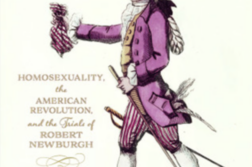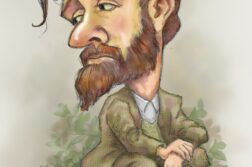ONE OF CUBA’S many paradoxes is the society’s acceptance of homosexuality within the concept of santería, a Yoruba-originated religion once considered primitive and deviant and now adopted as a national heritage symbol, a major aspect of a unifying folklore and an official tourist attraction. Furthermore, it is the most popular Afro-Cuban religion, gaining increasing popularity in Cuba and in the Cuban diaspora. In fact santería is by far the most popular religion practiced these days in Cuba. Male homosexuality—which traditionally in Cuba means sexually passive homosexuality—and cross-gender behavior are not only tolerated in santería but form an essential part of its mythology, philosophy, and practice. As paradoxical as it may sound, religion provides a unique space for homosexual identity and expression in a society with no official “gay scene” and with a history of machismo and state-induced homophobia.
El Monte, by Lydia Cabrera, is a 1954 classic ethnography of Afro-Cuban religion and one of the first to mention homosexuality (without using the actual term) within santería’s history and mythology. Cabrera, herself an out lesbian, refers to homosexuals as “invertidos” (an old-fashioned colloquial term meaning “reversed”) and to homosexuality as “el pecado nefando” (an archaic term relating to the “the abominable sin of sodomy”). She writes: “Since long ago it has been known that the abominable sin was very common in Regla Lucumi [santería]). She mentions Papá Colás, a well-known santería priest of late 18th-century Havana who “was a famous invertido married to another invertido … disguised as a woman … causing a great scandal.” She also tells the story of the female oricha [goddess]Yemayá, who fell in love with a homosexual man (Addodi, in Yoruba culture), went with him to the mythological country Laddó, where all men were homosexuals, or as quoted in the book, “maricas, mitad hombres” (“faggots, half-men”), and protected them. This myth contributed to the popularity of Yemayá among effeminate homosexuals.





